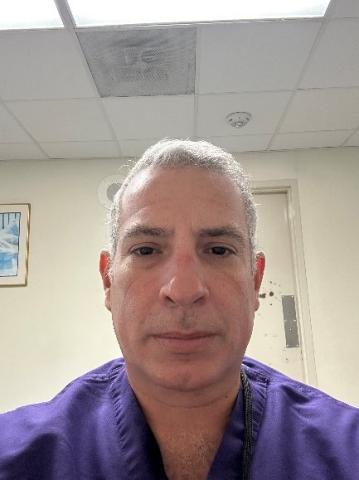SVS Presents...Leadership Challenges Webinar 2
Registration
Webinar on Hurricanes and Earthquakes
October 4, 2023
7:00 p.m. to 8:00 p.m. CST
Background
This is the second webinar in the series on leading through challenging times. This second webinar will be focused on leading through major disasters such as earthquakes and hurricanes. SVS has recruited four experts in the field of disaster preparedness who will speak to their experiences these major catastrophes. This interview-style webinar will include topics on how to prepare your institution, lessons learned, PTSD, and how to involve trainees in preparedness. SVS will also provide a variety of ongoing resources related to disaster preparedness.
Outline
- Welcome, introductions and overview of the Leadership Webinar Series
- Moderator: Fernando L. Joglar, MD
- Moderator: Fernando L. Joglar, MD
- Scenario 3 - Hurricanes in countries with limited resources – what has occurred and what was learned
- Moderator will introduce the faculty member and prepare 2-3 interview questions based on the SVS Leadership Development Program Methodology
- Faculty: Will provide an overview of what occurred in this scenario and what was learned. Moderators will then ask their 2-3 questions.
- Speakers: Pablo Rodriguez-Ortiz, MD
- Scenario 4 – Earthquakes in countries with limited resources – what has occurred and what was learned
- Moderator will introduce the faculty member and prepare 2-3 interview questions based on the SVS Leadership Development Program Methodology
- Faculty: Will provide an overview of what occurred in this scenario and what was learned. Moderators will then ask their 2-3 questions.
- Speakers: Gerd Daniel Pust, MD, MBA, FACS, FCCM, DABS and Magdiel Mayol, MD
- Post Incident/PTSD
- Moderator: Prepares 1-2 interview questions for both faculty speakers
- Moderator: Prepares 1-2 interview questions for both faculty speakers
- What are opportunities for vascular trainees during these challenging situations?
- Open Questions and Answer session with attendees
- Conclusion and resources
Faculty

Fernando L. Joglar, MD |

Magdiel Mayol, MD |

Pablo Rodriguez-Ortiz, MD |

Gerd Daniel Pust, MD, MBA, FACS, FCCM, DABS |
Resources
- Disaster Management and Emergency Preparedness (DMEP) Course offered by the American College of Surgeons Committee on Trauma
- FEMA Independent Study Program: Introduction to the Emergency Command System IS-100. C, IS-200.C, IS-700, IS-800
- Veterans Affair Office of Emergency Managemen
From the VA emergency management website:
Be Prepared:
Make a Survival Kid for Yourself and Your Family:
- Water: one gallon per person, per day (3-day supply for evacuation, 2-week supply for home)
- Food: non-perishable, easy-to-prepare items (3-day supply for evacuation, 2-week supply for home)
- Flashlight Battery-powered or hand-crank radio (NOAA Weather Radio, if possible)
- Extra batteries (Similar item available in the Red Cross Store)
- Deluxe family first aid kit Medications (7-day supply) and medical items
- Printed medication list Multi-purpose tool Sanitation and personal hygiene items
- Copies of personal documents (medication list and pertinent medical information, proof of address, deed/lease to home, passports, birth certificates, insurance policies)
- Cell phone with chargers Family and emergency contact information
- Extra cash Emergency blanket Map(s) of the area
Consider the needs of all family members and add supplies to your kit:
- Medical supplies (hearing aids with extra batteries, glasses, contact lenses, syringes, etc)
- Baby supplies (bottles, formula, baby food, diapers) Games and activities for children
- Pet supplies (collar, leash, ID, food, carrier, bowl)
- Two-way radios
- Extra set of car keys and house keys
- Manual can opener
Additional Supplies to keep at your home or in your survival kit based on the types of disasters common to your area:
- Whistle
- N95, surgical or cloth facemasks
- Matches
- Rain gear
- Towels
- Work gloves Tools/supplies for securing your home
- Extra clothing, hat and sturdy shoes
- Plastic sheeting
- Duct tape
- Scissors or utility knife
- Household liquid bleach
- Entertainment items
- Blankets or sleeping bags
Get Help:
- Visit your VA health care facility website for information about emergency events near you and response/recovery plans.
- Create and authenticate a MyHealtheVet account. Use secure messaging to stay connected with your health care team.
- Have a hard copy of your medication list in your survival kit.
- Make sure you have a mobile phone and charger in case you need to call for a first responder, emergency service or contact your family, friends and neighbors.
- Visit the FEMA website and explore the "Assistance" section.
- Take care of yourself. Explore some of these quick videos to help you manage stress and feel better.
- SAMHSA Disaster Distress Helpline
Stay Informed:
- Check the operating status of your VA health care facility.
- Go to your VA facility's website and sign up for email notifications.
- Get local information from local officials and community leaders. Use the FEMA search tool to locate and connect with those resources.
- Install a mobile app to your phone and stay connected wherever you go. These are not VA apps and VA does not manage, maintain or endorse any of these options:
- FEMA App
- SAMHSA App
- Index of many emergency management related mobile apps
- Red Cross published on the NIH website